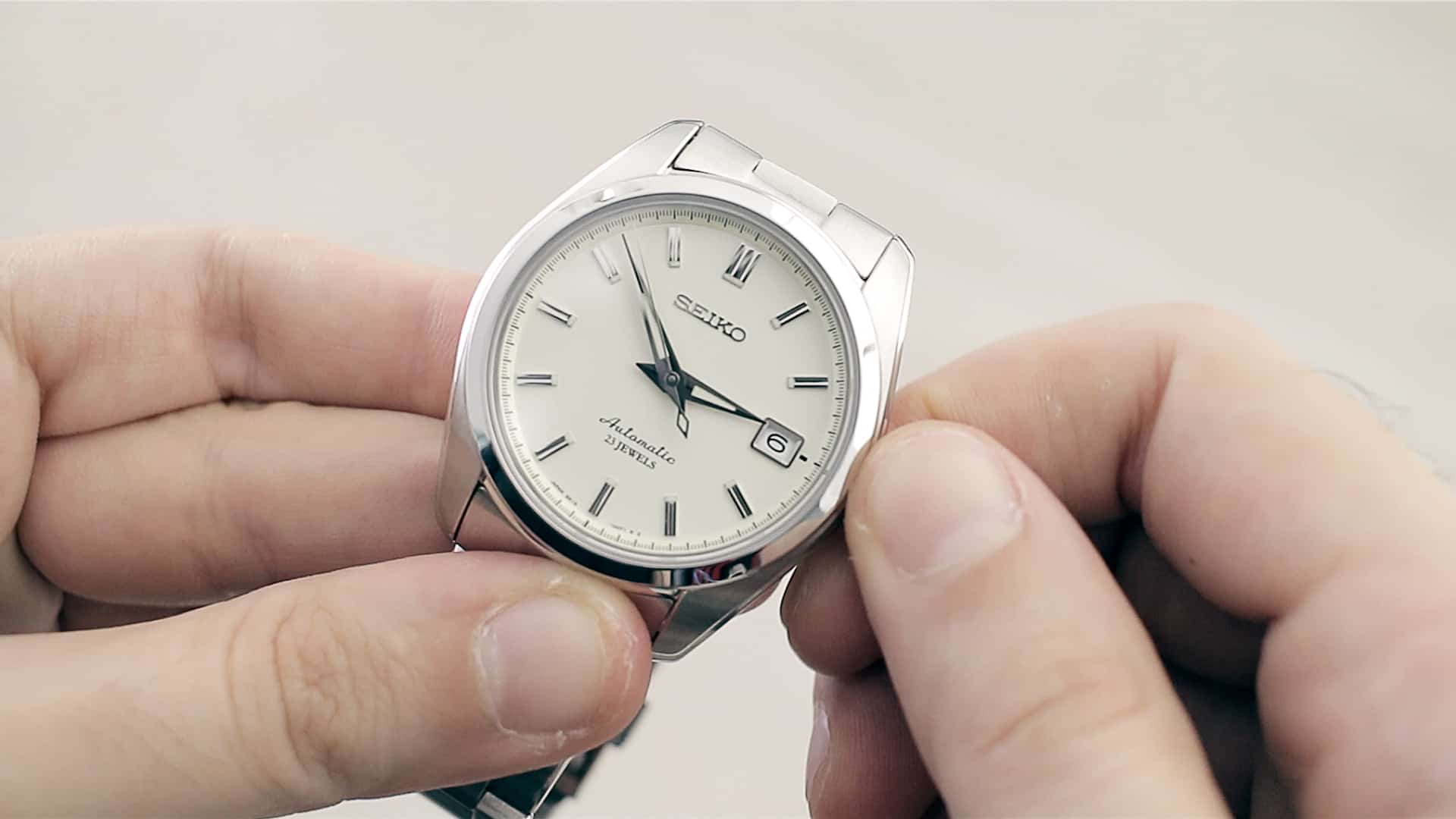Watches have always held a special place in our lives, blending fashion and functionality into a timeless accessory.
Yet, there are often misconceptions and myths surrounding these intricate timepieces. One such myth is the idea that you can break a watch by overwinding it. In this article, we will delve into the truth behind this common belief and provide accurate information to dispel any doubts.
Can overwinding really damage a watch? The short answer is no. Contrary to popular belief, modern mechanical watches are designed with built-in protection mechanisms to prevent damage caused by excessive winding.
However, there are important factors to consider when it comes to the care and maintenance of your timepiece. Join us as we explore the fascinating world of watches, uncover the truth about overwinding, and provide essential tips for keeping your watch in optimal condition.

Credit: theslenderwrist.com
Understanding Mechanical Watches:
Mechanical watches are intricate masterpieces of engineering that rely on a series of finely crafted components to accurately measure time.
The heart of a mechanical watch is its movement, which consists of various gears, springs, and oscillators. Unlike their quartz counterparts, which operate on battery power, mechanical watches are powered by a tightly wound mainspring that stores and releases energy, creating the ticking motion of the watch hands.
Overwinding: What It Means:
Before we proceed, let’s clarify what overwinding actually means. Overwinding refers to the act of winding a mechanical watch beyond its normal power reserve.
Many people associate overwinding with the notion that excessive winding can cause irreversible damage to the watch’s delicate inner workings. However, this belief is based on outdated information and a lack of understanding of modern watch technology.
The Reality of Overwinding:
Now that we know what overwinding truly entails, it’s time to uncover the reality behind this watch-related myth. Modern mechanical watches are equipped with ingenious mechanisms to prevent damage caused by overwinding.
One such mechanism is the slip clutch, which allows the mainspring to slip and prevent excessive tension from building up. This means that even if you continue to wind your watch beyond its power reserve, the slip clutch will ensure that the mainspring does not become overly tight.
Factors Affecting Watch Damage:
While overwinding itself may not be a cause for concern, there are certain factors that can potentially damage your watch. Excessive force during winding can put unnecessary strain on the delicate components, leading to issues over time. It is important to handle your watch with care and avoid applying excessive pressure when winding it. Additionally, regular servicing by a professional watchmaker is crucial to maintaining the longevity and accuracy of your timepiece.
Proper Care and Maintenance:
To ensure your watch remains in optimal condition, there are some important care and maintenance practices to follow. Firstly, it is recommended to wind your mechanical watch until you feel resistance and stop there.
Avoid forcing the crown when you encounter resistance, as this can lead to damage. Furthermore, be mindful of the specific winding instructions provided by the watch manufacturer, as different watches may have varying requirements.
In terms of general watch care, it is advisable to avoid exposing your watch to extreme temperatures, moisture, and magnetic fields.
Regular cleaning using a soft cloth and gentle motions can help remove dirt and maintain the watch’s appearance. Lastly, periodic servicing and inspections by a professional watchmaker will ensure that any potential issues are identified and resolved before they escalate.
FAQs:
Can I wind my automatic watch too much?
No, automatic watches are equipped with a built-in mechanism known as a rotor, which winds the mainspring automatically as you move your wrist. This mechanism prevents overwinding, so you don’t need to worry about winding it too much
Can overwinding affect the accuracy of a watch?
Overwinding itself does not directly impact the accuracy of a watch. However, if you continually apply excessive force when winding, it can potentially disrupt the delicate balance of the movement, leading to accuracy issues over time. It is best to exercise caution and follow the recommended winding procedures to maintain optimal accuracy.
How often should I service my mechanical watch?
It is generally recommended to have your mechanical watch serviced every 3 to 5 years, depending on the manufacturer’s guidelines and the watch’s specific needs. Regular servicing ensures that any potential issues are addressed, lubrication is refreshed, and the watch is thoroughly cleaned, maximizing its performance and lifespan.
What are the signs that my watch may need servicing?
There are several signs that may indicate your watch requires servicing. These include noticeable changes in accuracy, irregular timekeeping, a decrease in power reserve, difficulty in winding, or unusual noises coming from the movement. If you notice any of these signs or have concerns about your watch’s performance, it is advisable to consult a professional watchmaker.
Conclusion:
In conclusion, the myth that you can break a watch by overwinding is just that—a myth. Modern mechanical watches are designed with advanced protection mechanisms, such as slip clutches, that prevent damage caused by overwinding. However, it is crucial to handle your watch with care, avoid applying excessive force when winding, and follow the manufacturer’s instructions.
Proper care and maintenance play a vital role in preserving the longevity and accuracy of your watch. Regular winding within the recommended limits, avoiding extreme conditions, and periodic servicing by a qualified watchmaker are key practices to ensure your timepiece remains in optimal condition for years to come.
Remember, a mechanical watch is not only a functional accessory but also a piece of art and craftsmanship. Treat it with respect, and it will faithfully accompany you through the passage of time, a constant reminder of both its intricate mechanics and your personal style.
So, next time you wind your watch, appreciate the marvels of engineering within and wear it with confidence, knowing that the myth of overwinding is nothing more than an outdated tale.